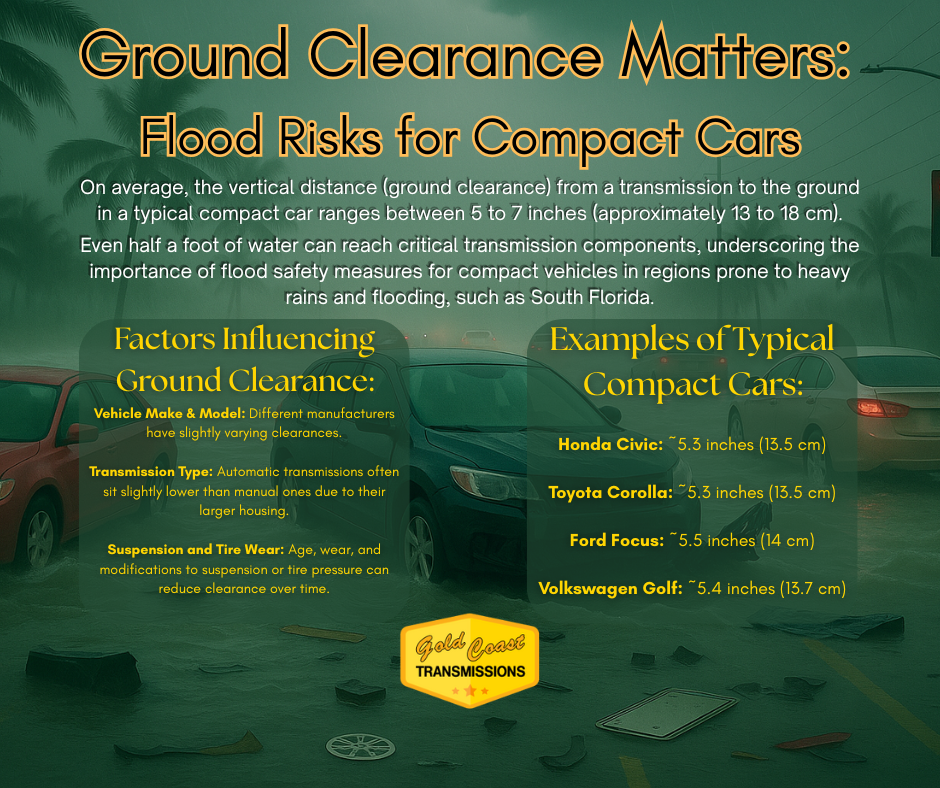Welcome to The Morning Shift—our new series of straightforward guides, behind-the-scenes insights, and expert explanations powered by the team at Gold Coast Transmissions. We’re starting with something you don’t usually think about when it comes to your car—until the check engine light shows up or it starts acting weird. It’s one of those behind-the-scenes problems that can throw everything off: How your vehicle’s electrical components can impact both your engine and transmission.
Modern vehicles are smarter than ever, but that also means diagnosing performance issues requires more than just popping the hood. Faulty sensors, damaged wiring, or failed modules can all lead to engine misfires, rough shifting, or even complete transmission failure.
How Electrical Systems Connect to the Engine & Transmission
Your vehicle is a rolling computer. Here’s how it all ties together:
Engine Control Module (ECM) & Transmission Control Module (TCM)
These are the “brains” of your powertrain:
- ECM: Controls engine timing, fuel injection, and emissions systems.
- TCM: Oversees gear shifts, torque converter lockup, and adaptive shift patterns.
They constantly communicate with each other. If the ECM sees a problem—say, incorrect air/fuel ratio—it may tell the TCM to delay shifts or trigger limp mode to protect the transmission.
Sensors That Impact Both
Many sensors send data to both control modules. A failure in one can cause a chain reaction.
- Throttle Position Sensor (TPS): Tells the car how hard you’re pressing the gas. A faulty one can cause harsh shifts or delayed acceleration.
- Mass Air Flow Sensor (MAF): Bad readings here can throw off fuel delivery and trigger poor shifting.
- Coolant Temperature Sensor: If the computer thinks your engine is too cold or too hot, it may adjust shift timing or even lock out higher gears.
Wiring Harness & Grounds
Even if all the components are working, bad wiring or poor ground connections can mimic bigger problems:
- You might see intermittent shifting.
- Or experience false engine codes that confuse diagnosis.
- This is why we always check your power supply, grounds, and communication networks during diagnostics.
Solenoids: The Hidden Movers Inside Your Transmission
One of the most important electrical components in your transmission system is the solenoid—or more accurately, a set of solenoids. These are electromagnetic valves that control the flow of transmission fluid through the valve body.
Each solenoid acts like a gatekeeper:
- It opens or closes based on electrical signals from the Transmission Control Module (TCM)
- This, in turn, controls which gear is engaged, how long it stays engaged, and when the shift happens
Common types include:
- Shift solenoids – direct fluid to activate gear changes
- Torque converter clutch (TCC) solenoid – locks the torque converter to improve fuel efficiency at cruising speeds
- Pressure control solenoids – regulate hydraulic pressure throughout the system
What Happens When a Solenoid Fails?
If a solenoid sticks, shorts out, or loses signal, you might notice:
- Harsh or delayed shifting
- Being stuck in one gear (limp mode)
- Transmission overheating
- Check engine or transmission warning lights
Because they’re electrical and hydraulic at the same time, solenoids are often misdiagnosed—especially if the problem is intermittent. At Gold Coast Transmissions, we test solenoid operation as part of our full electronic diagnostic process, using both scan tools and hydraulic pressure readings.
Common Symptoms of Electrical Issues Affecting Transmissions
- Sudden jerking or hard shifts
- Transmission stuck in 1st or 3rd gear
- No upshifts or delayed gear changes
- Check the engine light and transmission codes together
- Rough idle paired with shift hesitation
How We Diagnose the Issue
At Gold Coast Transmissions, we use:
- Advanced scan tools
- Oscilloscopes for wiring trace
- Live data logging to track signal drops
It’s not just about pulling a code—it’s about interpreting what the system is trying to tell us.
Further questions about your transmission? Give us a call at either shop:
Fort Lauderdale: (954) 983-3005
Davie: (954) 472-2662





